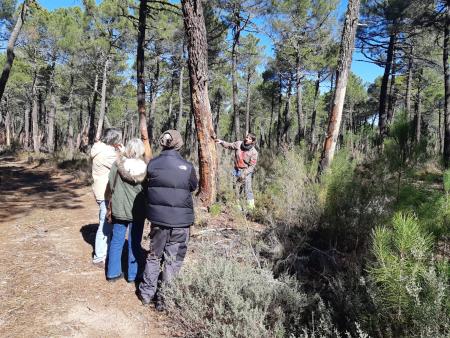
Objective:
The study advances in the socio-labour reality knowledge of the Spanish workers dedicated to the resin extraction, and in the group perception about aspects related to entrepreneurship and sectorial problems.
To this end, three key aspects are elucidated:
- The definition of the typical resin workers profiles, and the socio-labour situations that characterise each one of them.
- The study of the key factors for the incorporation and the abandonment of the resin activity.
- The sounding of sectorial or professional aspects that the workers consider most relevant to be addressed at present.
Context:
The number of active resin tappers in Spain in 2019 is not well known, but would be around 1,200 workers. These professionals demand support policies from the authorities in the form of territorial contracts to complete and stabilise their work activity, training and guidance programmes and technological improvements.
The implementation of technical and socioeconomic support initiatives requires knowledge of the target group, their qualities, their shortcomings and their expectations, to adjust and design possible improvement programmes and actions tailored to their needs.
Contacts:
Guadalupe Ramos Truchero, guadalupe.ramos@uva.es , https://www.uva.es
Javier Calvo-Simón, javier.calvo@cesefor.com, http://www.cesefor.com/
Further information:
https://www.sust-forest.eu/